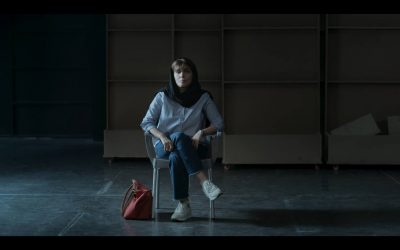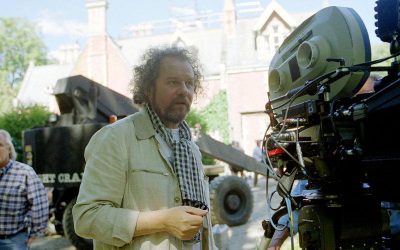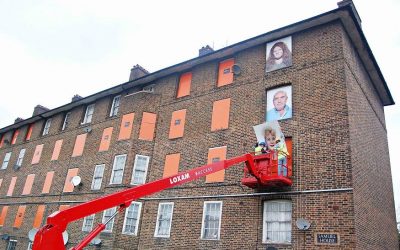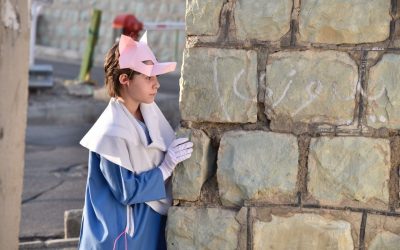Dwan Kaoukji is Lebanese and was born and raised in Kuwait. She is a social scientist by profession and recently began exploring her career as a filmmaker. Canary in a Coal Mine is her first short fictional film. Before this film, Dwan directed a short documentary for BBC World Service called “The Soul of the Rose” which explores the lives of natural perfumers in Northern India. The documentary was broadcast on the BBC World Service and the BBC World News website in 2016.
Synopsis: One night, while guarding his aunt’s house in a remote Lebanese village, Anis is forced to pretend he is a burglar to save his life during a break-in.
RedCut: How did you start actively in the field of cinema?
This short is actually my first attempt at filmmaking! I’ve never made a film before and actually worked in a completely different field. But I’ve always been obsessed with cinema and the filmmaking process in particular. I came across the story a few years ago and it really resonated with me visually. I felt it had the ingredients for a good short. It took me a year or so to muster up the courage to turn the story into a script, and as soon as I had, I was completely hooked! I’m hoping this is the start of a new journey into cinema.
RedCut: What matters in your short film is the unsafe home existing in an unsafe land. It somewhat alludes to plundering and stealing our history, documents, and historical memory by thieves living in stolen lands and geographies, and the homes that are vulnerable.

Dwan Kaoukji
Absolutely! The story is very much a metaphor for the crimes committed by the state over the last few years. In 2019, we had an economic crisis in Lebanon that was created by a severely corrupt government and left the country entirely bankrupt, deteriorating economic stability, and soaring inflation rates. The population couldn’t access their savings or assets in the bank and families were devastated. The situation left people with no trust in the government and no sign of hope for their future.
I was very affected by these changes personally. I don’t feel safe in my home today, and coping with these changes has been challenging. However, I find inspiration in people’s coping mechanisms and their resistance to control. Lebanese people have historically been through years of civil war and a great deal of social, political, and economic instability, which has left them very resilient to change. And their biggest coping mechanism is to actively look for new opportunities and possibilities for change. Home is very important to us, and while we may not have enough power to make a change, our perspective on home is something that is in our power.
My short film tries to convey this slightly through Anis’s story. Our instinctive response to perceived fear, danger, or a stressful situation is typically “fright, flight, or freeze”. But in Anis’s case, he chose neither of these options. Instead, he tried to outsmart the thieves by taking on a different identity and using it as an opportunity to save his life and get his aunt’s furniture back, only to be surprised by where that would take him.
RedCut: What is your new project? If you have a new film, please tell us a bit about the film’s story.
I’ve just started working on my second short film. It’s a dark comedy about an unexpected romantic relationship that develops between a middle-aged man from the Gulf and a female sex worker in Lebanon. It’s still in its very early stages but I’m hoping to finish it this year!











